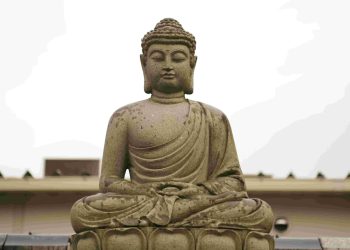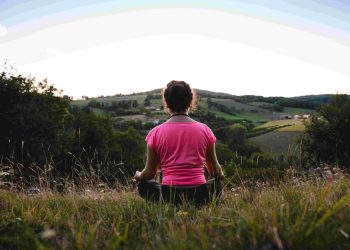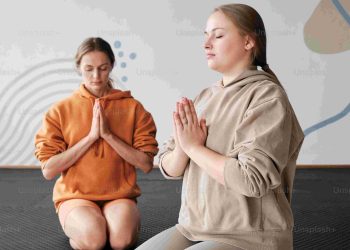Effective Meditation Techniques for Stress Relief
In a world where busyness dominates our lives, the quest for serenity seems more elusive than ever. We rush from one task to another, propelled by deadlines and pressures that can lead to overwhelming stress. But what if I told you that amidst all this chaos lies a simple, transformative practice? Meditation, an ancient art, has emerged as a powerful antidote to stress, and its techniques are becoming vital tools in our fast-paced lives.
Personal Journey to Calm
Reflecting on my own life, I recall the whirlwind of stress that consumed me during my university days. Juggling academics, part-time jobs, and social lives felt like walking a tightrope. A friend introduced me to meditation, suggesting that a few quiet moments of mindfulness could reset my mental state. Skeptical yet desperate, I gave it a chance, and what unfolded was not only relief from my immediate stress but a deeper understanding of my thoughts and emotions.
Expanding Beyond Individual Experiences
This personal revelation echoes a broader societal trend: millions worldwide are incorporating meditation into their daily routines. As we grapple with challenges such as rising mental health issues, prolonged dissatisfaction at work, and the increasing noise of social media, the integration of mindfulness practices is becoming essential. Meditation is no longer seen as a niche activity reserved for spiritual seekers; it has blossomed into a mainstream lifestyle choice.
Challenging Conventional Wisdom
Traditionally, meditation has been viewed as a solitary practice, often misconceived as merely sitting in silence and “doing nothing.” However, this notion deserves a robust challenge. Meditation is an active pursuit of awareness, akin to a mental workout that strengthens the mind. In actuality, the experience can range from guided sessions to movement meditations, emphasizing that there’s no one-size-fits-all solution. The true wisdom lies in understanding which technique resonates most deeply with you.
Cross-Disciplinary Insights
Bringing together various fields such as psychology, neuroscience, and even philosophy, we can better appreciate how meditation works. Science has shown that regular meditation practice can alter brain structure—boosting areas responsible for emotional regulation while decreasing activity in the amygdala, the brain’s stress center. Meanwhile, ancient philosophers argued for centering oneself to live a balanced life. As we stand at the crossroads of mindfulness and modern science, the convergence of insights provides compelling evidence to take meditation seriously.
Future Trends in Stress Management
Looking ahead, the trend for integrating meditation into work environments is indeed on the rise. Organizations now recognize that employee well-being directly influences productivity and engagement. Companies like Google and Apple have established mindfulness initiatives, offering meditation spaces to encourage mental breaks. This trajectory suggests that stress management through mindfulness will soon become not just advantageous but necessary in cultivating a healthy workplace.
Practical Steps to Begin
If you’re seeking to dip your toes into meditation, here are practical strategies to help you start:
-
Set a Schedule:
Allocate time each day—whether it’s five, ten, or thirty minutes—for your meditation practice. -
Choose a Method:
Experiment with different techniques. Try guided meditations through apps like Headspace or Calm, or ponder mindfulness in movements like yoga. -
Create a Dedicated Space:
Designate a quiet area in your home where you can practice without interruptions, keeping it inviting and sacred. -
Focus on Breath:
Begin your sessions by concentrating on your breathing. Feel the air fill your lungs, anchoring your awareness. -
Be Kind to Yourself:
Understand that your mind can wander; acknowledge these thoughts gently and redirect your focus without judgment.
Visualizing Complexity
Consider meditation like a river flowing through the vast landscape of your mind. At times, the waters are calm, reflecting the clear blue sky; other times, rapids surge, tumultuous and chaotic. Meditation helps you to navigate these waters, understanding when to paddle gracefully and when to allow the current to carry you. Just as we learn to ride the waves in life, meditation equips us with the skills to weather our mental storms.
The Imperative of Lifelong Learning
As we delve deeper into the practice of meditation, an essential component emerges—the practice of continuous learning. Exploring different meditation styles—mindfulness, transcendental, and loving-kindness—allows for greater adaptability as we move through life’s various phases. Cultivating a learner’s mindset encourages you to view experiences, both successes and failures, as opportunities for growth.
Taking Action
Now is the time to turn insight into action. If you’ve pondered the concept of meditation but have hesitated to start, take the plunge. Allow the discomfort of uncertainty to transform into a curiosity for exploration. Find local classes, online workshops, or community groups dedicated to mindfulness practices. Embrace the challenge and bring meditation into your life as a daily practice, not just a fleeting thought. The change you seek can only begin when you make the conscious decision to act.
Encouraging Critical Thinking
In light of all this, it is crucial to cultivate critical thinking about mainstream mindfulness narratives. While many embrace the idea that meditation is a cure-all, it’s worth discussing the nuanced reality: meditation is a tool, not a panacea. It does not replace professional mental health treatment where needed, nor does it erase the challenges of modern life. Engaging with meditation must be approached with a balance of hope and realism.
Closing the Loop
As I reflect on my journey with meditation, I am reminded of its profound impact—transforming my life from constant stress to one of tranquility and awareness. In this chaotic world, where external pressures often overwhelm us, meditation stands resilient as a beacon of hope. By actively seeking out and employing these techniques, we can harness the power to reclaim our mental space, initiating a ripple effect that extends beyond ourselves into communities, workplaces, and the world at large. The challenge lies not in knowing that meditation exists but in embracing the commitment to make it a regular part of our lives. Are you ready to begin your journey?










